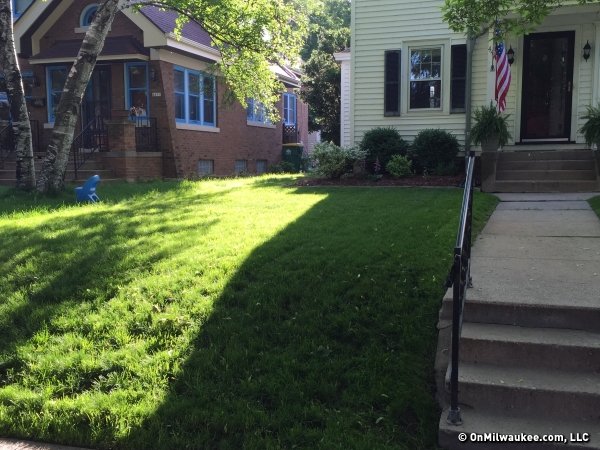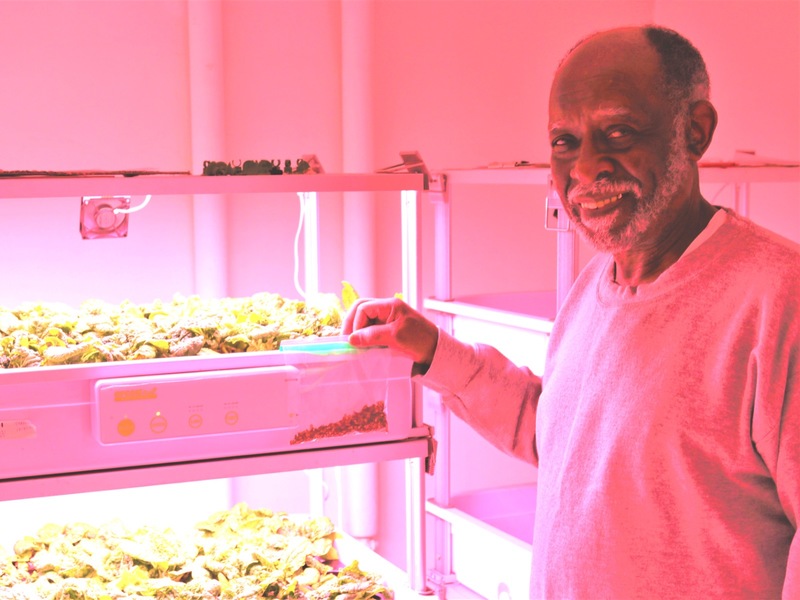I'm guessing, if you have a lawn, that you've already thought about mowing it. Or, maybe you already have fired up the mower or have your lawn service teed up.
If you are tackling your lawn on your own this spring and summer, it's always good to consult an expert first. Thankfully, I've done just that here.
I talked to Brad Blaeser from The Green Team of Wisconsin recently, and asked him questions about your lawn and mine, and how we can all best grow and mow our grass.
On a residential basis, what are your two or three biggest tips for homeowners? And, what's the biggest mistake people make with their own lawns?
A mistake that is commonly made is mowing too short. In general the taller the grass is, the deeper the roots, the more drought tolerant it becomes and the more it's going to out-compete the weeds.
The big cycle that many lawn companies love is almost like an addictive cycle – mow short, pump it with fertilizer to keep it green, kill weeds that pop up because the grass is not competing well… it all goes hand in hand. You can get a false green up from synthetic nitrogen that is pumped into the soil, and you think "Wow, this is a healthy lawn," but it's just false. Most of those lawns don't have good cycling of nutrients in the way that nature normally does it.
If you took a soil sample from a lot of these corporate treated lawns, it's going to be high clay and the organic matter and biological life will have been depleted or at least not improved. What we're actually trying to do is build a soil community. That means beneficial soil microorganisms that live in the soil’s organic matter and feeds your lawn. Truth be told, a lawn is a monoculture, so you're trying to do something that's not entirely natural. We see ourselves as farmers- farmers of what’s beneath the soil surface.
What are some other ideas for our lawns?
We like to change peoples' paradigms, "Okay, if you're going to do that, let's build a community here with the right microorganisms, worms, and turf working together. Mow it higher. Aerate it. Over-seed it. Add compost to build organic matter. Leave your clippings, which people have largely done more and more over the last 20 years. There are some trends that are happening with that, but furthermore, do you need that much grass? What else can you do? I get that there's a Feng Shui to it and having just flat green space can be good for certain environments, giving a sense of organization and simplicity. It’s also a space for kids and pets to play. I get that and that's okay. If you're going to do it, do it naturally, do it right, build communities. If you're going to eliminate that, what can you do, what are the benefits? Is there more or less water retention? You might not get water retention with less turf. Properly managed turf is actually a great sponge.
Tell me more.
We're involved in a study to measure the "sponge effect" of well-managed organic turf. We are collaborating with an engineering firm, along with MMSD and the University of Wisconsin-Milwaukee. We got involved because we’ve noticed some of our long-standing organic turf projects are functioning better in terms of water infiltration. In our daily lives, we often see grass and ignore it, rather than seeing it as an asset.
Working with MMSD, we’re saying "Look, we have an existing infrastructure that exists. We have turf all over. We can make this better by doing X, Y and Z," mowing, aerating, all the things I mentioned. Then the engineers and mathematicians come in to measure and extrapolate, what would this mean if we did this to 10 acres, 50 acres, a 100, 1,000 acres. What would the cost be? Sure it's going to be a higher cost than how turf is typically maintained and often ignored, but it could be significantly less than building more deep tunnel space. If our predictions prove true, sustainably managed turf would involve less investment than other green infrastructure practices like porous pavement or green roofs and have potentially better results. And in some cases, having guys mow it higher is of no extra cost, it's just training.
We’re also trying to impact larger landscapes. We have worked with UWM to spread compost – 400 cubic yards on the entire campus – as part of an initiative to "green" their turf in the true sense of the word.
There's some neat stuff happening there in the turf area.
How do you define success?
Success, for me, is if I can wake up in the morning and say, "What do I want to be when I grow up," and feel like I'm doing that, and that I have the ability to do those and other creative things that I want to do when I grow up, having fun envisioning those things, connecting people to achieve those things, for me, I think that's success.
A life-long and passionate community leader and Milwaukeean, Jeff Sherman is a co-founder of OnMilwaukee.
He grew up in Wauwatosa and graduated from Marquette University, as a Warrior. He holds an MBA from Cardinal Stritch University, and is the founding president of Young Professionals of Milwaukee (YPM)/Fuel Milwaukee.
Early in his career, Sherman was one of youngest members of the Greater Milwaukee Committee, and currently is involved in numerous civic and community groups - including board positions at The Wisconsin Center District, Wisconsin Club and Marcus Center for the Performing Arts. He's honored to have been named to The Business Journal's "30 under 30" and Milwaukee Magazine's "35 under 35" lists.
He owns a condo in Downtown and lives in greater Milwaukee with his wife Stephanie, his son, Jake, and daughter Pierce. He's a political, music, sports and news junkie and thinks, for what it's worth, that all new movies should be released in theaters, on demand, online and on DVD simultaneously.
He also thinks you should read OnMilwaukee each and every day.







